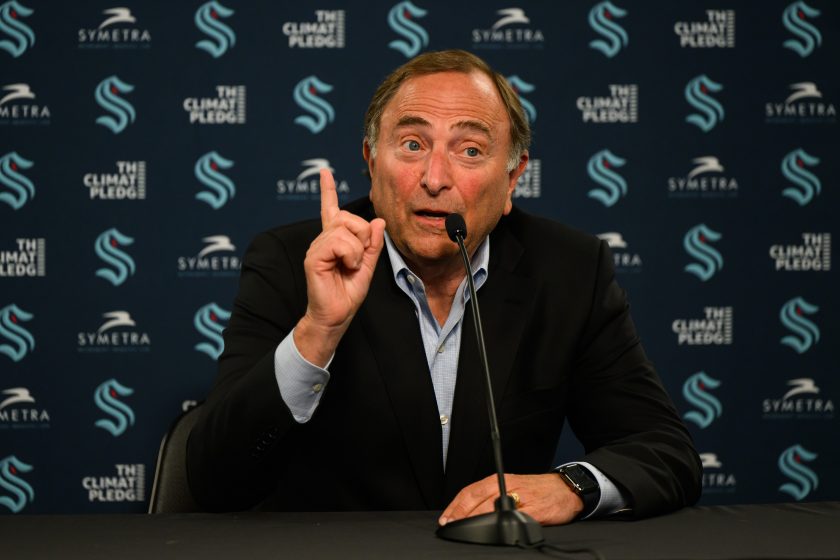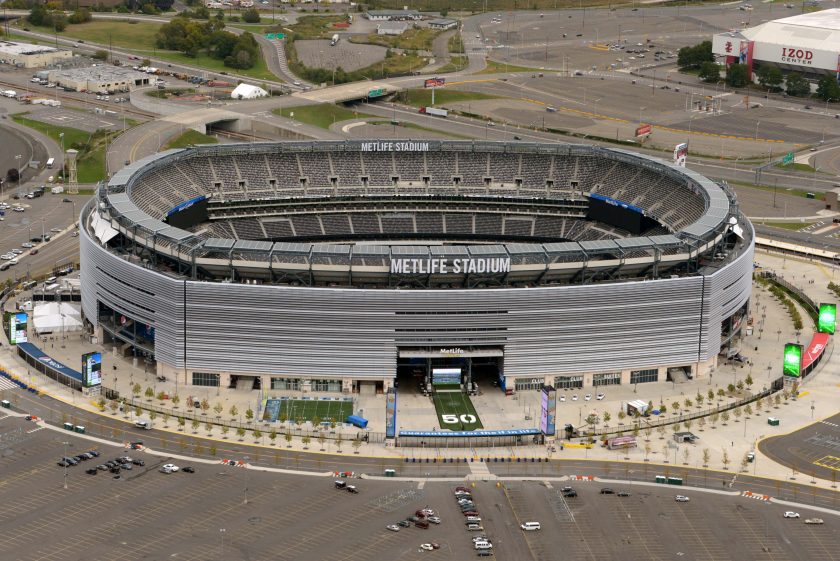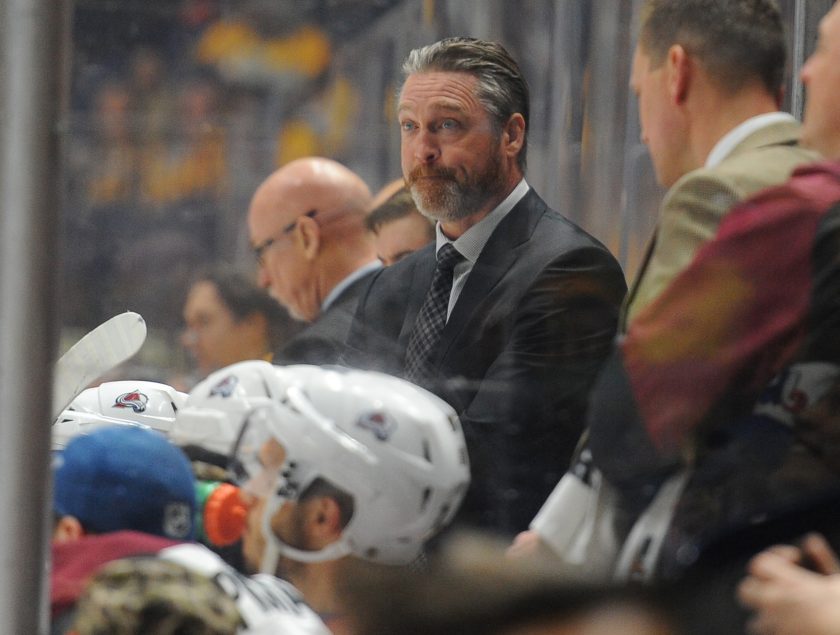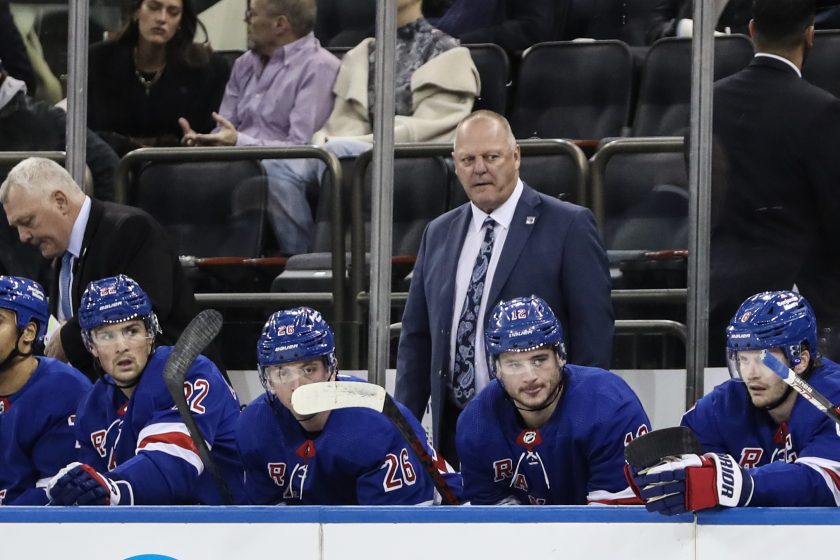The 6 Greatest Captains in New York Rangers History
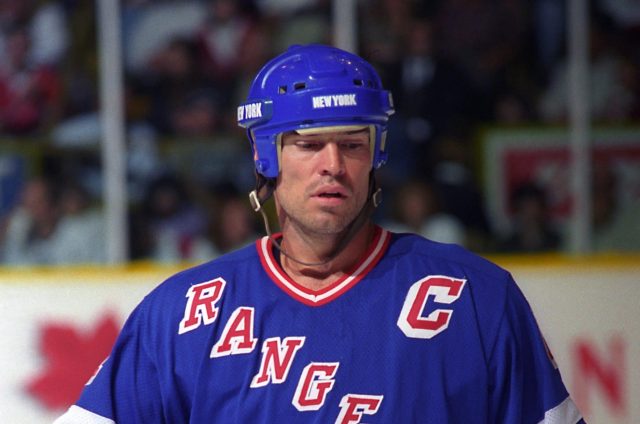
With the 100th anniversary season nearing, we take a look at the six greatest captains in the history of the New York Rangers.
Established in 1926, the New York Rangers are an Original Six team full of great history, players and captains.
Despite winning only four Stanley Cups, the Rangers have had some of the best players that the NHL has had to offer. With that, the organization has always felt the need to supply fans with some of the best players the game has offered. Those players have been known to be great leaders which have provided fans with memories that can only last a lifetime.
The Rangers have had 28 captains in the team’s 90 seasons in the NHL. Here are the top six captains in Rangers history.
Honorable Mentions
- Andy Bathgate (Captain from 1961-1964)
- Dave Maloney (Captain from 1978-1980)
- Brian Leetch (Captain from 1997-2000)
6. Bill Cook (Captain from 1926-1937)
In the Rangers inaugural season, Bill Cook was named the first captain in franchise history. Cook did not disappoint as he would lead the Blueshirts’ to two Stanley Cup Championships in the 1927-28 and 1932-33 seasons, via HHOF.com.
“Nobody fooled around with Bill because he was tough. Real tough. Bill was the best (right winger) we ever played against.” – Joe Primeau
Cook scored the first goal in franchise history in the teams first game on Nov. 16, 1926, against the Montreal Maroons. This would the be the first of 229 goals scored by the right-winger in 11 seasons with Blueshirts’.
With the Rangers on top 2-1 in the 1933 Stanley Cup Finals against the Maple Leafs, Cook scored one of the biggest goals of his career. The Rangers would go on to win game four and their second cup in franchise history thanks to Cook’s game-winning overtime goal.
5. Harry Howell (Captain from 1955-1957)
Harry Howell holds a Rangers record that might never be broken with him skating in a franchise record 1,160 games with the Rangers. Howell only missed 40 out of a possible 1,200 games with the Rangers, becoming a staple on the Rangers blueline.
A Norris Trophy winner in 1966-67 during a time where Bobby Orr was constantly winning this award, Howell continued to shine on Broadway. Howell is one of four Rangers to receive the Frank Boucher Trophy in three straight seasons. Howell was inducted into the Hockey Hall of Fame in 1979 and the Rangers would go on to retire his number three in 2009.

Howell spent 17 years with the Rangers and did everything you could possibly do for an organization except win a championship. His 345 points rank 27th on the Rangers all-time points leaderboard. He truly was one of the greatest players to wear the Rangers uniform and serve as captain.
4. Ron Greschner (Captain from 1986-1987)
Ron Greschner is another Ranger captain that played their entire career with the New York Rangers. From 1975-90, Greschner was a staple on the Rangers blueline scoring 610 points in 982 games. Although he only served as the Blueshirts’ captain for one season, Greschner’s mark on the organization cannot go unnoticed.
Perhaps the most impressive stretch in his career was when he put up 12 points during the 1978-1979 playoffs in leading the Rangers to the Stanley Cup Finals for the first time since 1972.
“I remember what Ron Greschner said when he retired. ‘The thing I’m going to miss most is showering with 23 guys.’ And that’s what it’s all about: camaraderie.” – Mike Richter
In 84 games during the postseason, Greschner scored 49 points and even though the Rangers would fail to win a cup in that span, Greschner’s impact cannot go unnoticed.
3. Phil Esposito (Captain from 1975-1978)
Despite coming to the Rangers in the latter stage of his career, Esposito is one of the most respected Rangers to date. In parts of six seasons with the Blueshirts, Esposito scored 404 points despite having a hard time adjusting to the big apple.
Esposito played an incredible role in getting the Rangers to the Stanley Cup Finals in the 1978-79 season. His eight goals and 12 assists served as proof that Esposito still had a magical run him despite the end of his career looming.
“Play with passion and heart. If you don’t carry passion into sport — or in any job for that matter — you won’t succeed.” -Phil Esposito
One thing that was always present with Esposito’s game was his leadership. His leadership ability serves as one of the reasons why the Rangers allowed him to become an assistant coach following his retirement in 1980.
2. Barry Beck (Captain from 1981-1986)
In seven seasons with the New York Ranges, Barry Beck was known amongst Ranger fans as the rock for the team in the 1980s.
Beck skated in 415 games with the Rangers where he would score 66 goals and 173 assists. Coming to the Rangers fresh off of a run for the Stanley Cup during the 1979 season led to a lot of pressure for Beck to bring the team back. Beck would help the Rangers get to the Eastern Conference Final in 1981 that would see them fall short against the rival New York Islanders.

When talking about Barry Beck, you have to mention how great of a player he really was. He was a dominant player that never got the credit he deserved, but that happens at times in the Big Apple.
1. Mark Messier (Captain from 1991-1997, 2000-2004)
Mark Messier will forever go down as not only the greatest captain in Rangers history, but perhaps the greatest leader in American professional sports history. After playing in 12 seasons with the Edmonton Oilers, Messier came to the Rangers with the task of bringing them their first cup 54 years.
With the Rangers down 3-2 in the series against the New Jersey Devils, Messier made what is known as the guarantee. The captain guaranteed that the Rangers would win Game 6 on the road to force a Game 7 and keep cup hopes alive. Players who make guarantees and fail are often ridiculed, but not Messier. Messier upped his game scoring a hat-trick in Game 6 followed by a Rangers double-OT victory in Game 7. The Rangers would go on to win it all in 1994 and Messier played a large role in that with 30 points during that playoff run.

Messier’s leadership ability led to the creation of the Mark Messier Leadership Award, recognizing a player as a superior leader in the sport as well as a contributing member of society.
[sc name=”Rangers Link Next” link=”https://elitesportsny.com/2017/11/10/new-york-rangers-young-guns/” text=”The Rangers Young Guns Are Leading the Way” ] [sc name=”Rangers Section” ]Dominick is a graduate of Canisius College. He has covered the Rangers for the last seven seasons and the Yankees for the last four.



